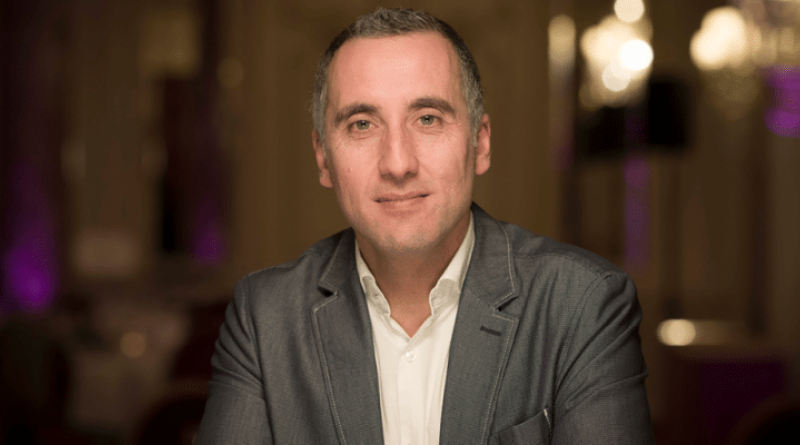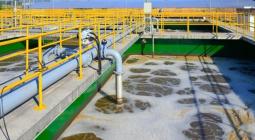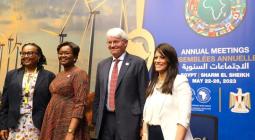Malek Semar: “recycling wastewater is no longer a choice, but the prospect”

Over the coming years, Africa will have to make real commitments to effectively address the challenge of water stress which continues to intensify. For Malek Semar, the founder of the “No Water No Us” association which raises awareness and acts for water on the continent and elsewhere, it will be necessary to recycle the 80% of untreated wastewater on the planet to irrigate, water, clean and drink, thereby reducing pressure on clean water resources.
Over the coming years, Africa will have to make real commitments to effectively address the challenge of water stress which continues to intensify. For Malek Semar, the founder of the “No Water No Us” association which raises awareness and acts for water on the continent and elsewhere, it will be necessary to recycle the 80% of untreated wastewater on the planet to irrigate, water, clean and drink, thereby reducing pressure on clean water resources.
Your fight for access to drinking water begins in Kabylia, your native region in northern Algeria where you lived your entire childhood without water. And today you continue the fight, not only for yourself, but for the entire African continent. Is the fight for access to drinking water ultimately a never-ending battle?
Malek Semar : The fight for water is global, because water has no borders.
For my native Kabylia, I was actually born and raised in a village without water or electricity. Walking a few kilometers every day to fetch water was a normal situation. The oldest among us was 10 years old and we already felt big, strong and independent in this task. The memories are positive, because it was our time of relaxation and play, without any adult presence. This experience also anchored the values of scarcity and sharing, even if the awakening was late to fully realize them a few years ago.
Today, billions of people suffer from lack of water or unsafe water. The fight is therefore endless. The hardest part is having to accept, with certainty, that we will not save everyone.
You set up the “No Water No Us” association which raises awareness and takes action for water. What are its missions?
“No Water No Us” means in French “No water, no us”. It's a bit the consequence of these first years without water, of different industrial projects and of conferences that I give around water.
We have two verbs that characterize us in this non-governmental organization (NGO): it is to raise awareness and to act. We focus on three themes: wastewater, drinking water and biodiversity. Our breadcrumb trail is the sixth Sustainable Development Goal (SDG6), which aims to guarantee access to water and sanitation for all and ensure sustainable management of water resources by 2030 (Editor's note ). Art and sport are our best luggage for the world of tomorrow. So we rely on it to unite around water.
To raise awareness through culture, our base is the show “L'EAU, MAIS”, labeled Saison Africa 2020, which I co-wrote with Brice Kapel and which we performed as part of this African season. On a sporting level, we carry out actions with high-level athletes, where sporting exploits are used to benefit the societal and environmental cause through water.
Alongside art and sport, you suggest recovering wastewater to alleviate the pressure of water stress. But to get there, they must already be exploited. Is this the case today?
In the world, 80% of wastewater is released into nature without any treatment according to the United Nations (UN), so yes it is underexploited. And of the 20% of treated wastewater, I'm not sure that we reuse 10%.
Whether industrial or agricultural processes, all activities need a lot of water. By recycling agricultural and industrial wastewater almost infinitely, we reduce the pressure on available water. Recycling wastewater is therefore no longer a choice, but the prospect. This is why I speak of a lifeline.
So why don't we do it? Maybe the cost. If we talk for example about my country Algeria which is one of the countries which have taken the problem of water stress head on, I find that it is a good student in view of the projects in progress even if the reaction is late .
By 2025, the UN predicts that 38% of the world's population will be exposed to water stress. The water crisis is becoming a geopolitical issue. Finally, we have water since the quantity has not changed for 4 billion years and even the salty and fresh distribution has almost remained the same. We just have a water quality concern. In my opinion, and I say it again, we have no choice but to recycle wastewater.
To move from words to deeds, you have chosen to take shares in the company France Industries Intégration (FIA), which is innovating in the world of water with an innovative, containerized wastewater treatment station. What makes your installation different from a standard installation?
I joined Jacques Momeux in the FIA company at the end of 2017, then Gilles Picozzi, Blaise Matuidi and Yohan Benalouane joined us with the objective of having a positive impact on the world and providing sustainable solutions to the water professions, in particular in sanitation.
Coming back to FIA's innovation, rather than large centralized treatment plants made of cement and pipes, we designed compact, mobile, modular and less expensive treatment plants. The idea was to have several decentralized and virtuous ecosystems that generate wealth. Wastewater can be reused to irrigate, clean, recharge groundwater, or even drink. Sewage sludge used as fertilizer, biocompost or even energy. Concerning the technology used, the choice of a bacteriological treatment, therefore natural, was obvious.
You also affirm that your solution converts wastewater into drinking water. It is still a very rare practice in Africa, although it has been used in Namibia for several years. Can we today consume treated wastewater without fear for our health? And how can we convince African populations to get involved?
Techniques for recovering wastewater have existed for a long time, we are not inventing anything. We only improve them to make the water even better by recovering organic waste in the process. So, yes the technology makes wastewater perfectly drinkable, and this is already common in Namibia, but also in California in the United States of America.
Psychologically, it actually seems difficult to tell yourself that you are drinking the water that comes out of the toilet. Oddly, drinking water from the river into which a few billion people dump their sewage is not up for debate. The focus must be elsewhere, not on whether or not to drink treated wastewater, as the quantity of water we drink is tiny (3 liters per day) in view of the overall quantity necessary for our way of life. , or 300 liters per day, or thousands of liters if we consider the water footprint.
Furthermore, if we reuse treated effluent for irrigation, watering, cleaning and in industrial and agricultural processes, this will slow down the depletion of water intended for consumption, which is currently overexploited.
Is wastewater treatment really profitable?
When you want to develop a country economically, there are two paths. The way of Man and the way of water. Health is a good example. The human path consists of investing a lot of money in a health system to treat as many sick people as possible. For this model to work, you need a system that creates as many sick people as possible and generates more money.
The water route is different. If we invest in wastewater treatment and my water becomes clean, then I will necessarily make residents less sick and therefore I will invest less in health systems.
If I come back to the economic aspect, the water market represents around 600 billion euros per year. We only treat 20% of wastewater. So this assumes that the 80% of untreated wastewater represents an important market that no one is addressing. According to the World Health Organization (WHO), 1 euro invested in water and sanitation is 4 euros generated in the economy. So even from an economic point of view, it is an aberration not to treat wastewater.
Ultimately, wastewater treatment is profitable for human life, for biodiversity, for the planet, but also for the wallet because it generates wealth.
And what about the energy cost?
We are already succeeding in making wastewater treatment plants energy self-sufficient by powering them with solar energy. Furthermore, we are thinking about reusing the water at the outlet and putting Archimedes screws in reverse to create energy which would self-supply the wastewater treatment plants along the way, or to create hydrogen because it takes water to produce hydrogen.
In addition to the reuse of treated wastewater, countries such as Algeria, Egypt and Morocco rely on the desalination of seawater to alleviate water pressure. Do you approve of this other alternative?
There is an adage that says “a bad action is better than no action at all”. This undoubtedly allows us to learn and better understand Nelson Mandela when he tells us “we either win or we learn”. I think we will lose out from desalinating in the long term and I hope we will learn to do it better over time.
Beyond the environmental and energy impact, there is a form of inconsistency in doing so. I spoke to you about the parallel between the way of Man and the way of water to develop a country. Desalination is another example.
We pay a lot of money to treat sea water, from an environmental point of view since we discharge very concentrated brine into the ocean which kills biodiversity, and from an energy point of view since it is very energy consuming. Once the water is desalinated, it is used. The resource will then be returned to the sea to salt it, to be desalinated later. So I pay to desalinate and resalt endlessly. That is the way of Man.
The water route would simply consist of treating and reusing wastewater and even rainwater rather than discharging it into the sea for resalting. They could be stored to recharge groundwater, for example.
Man always chooses the easy way. I can understand the urgency of turning to desalination for countries that have no other access to water. But I remain convinced that this is just a backup solution. First, let's treat and reuse all urban, industrial and agricultural wastewater.
The very first African Water Forum (AEF) has just ended in Rabat, the capital of Morocco, where the focus was on considering Africa's water future. Can such an event contribute to better water management?
Concerning the Forum itself, it is a new strong sign of Africa's awareness of these issues, since we are talking about human lives and geopolitical crisis.
Beyond the speeches which also aim to raise awareness, I expect real actions, which must be local, because the problems of access to water are specific to each country. If the solutions must be local, we must think about a kind of global governance, because we must share the same water. And when in doubt, recycling more wastewater, even if it means being careful, is a path where we will all benefit.
Comments collected by Inès Magoum





